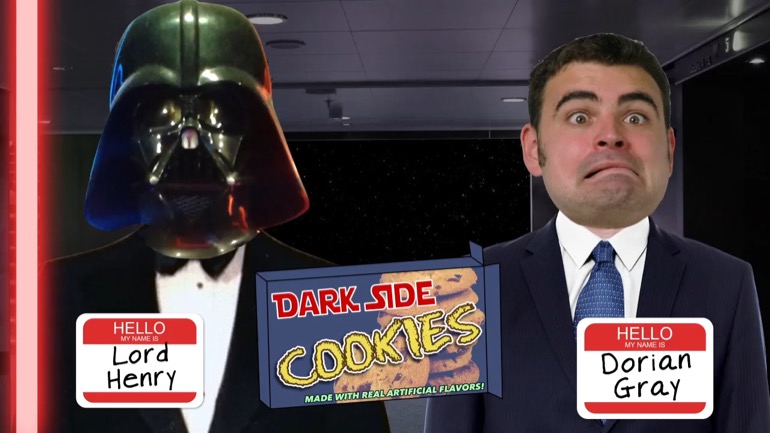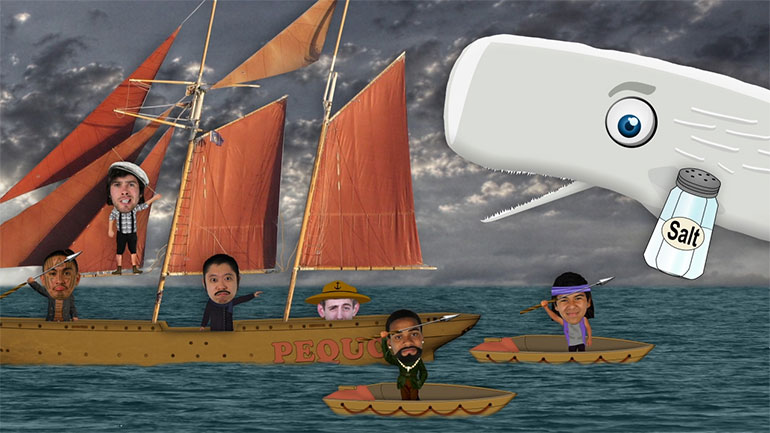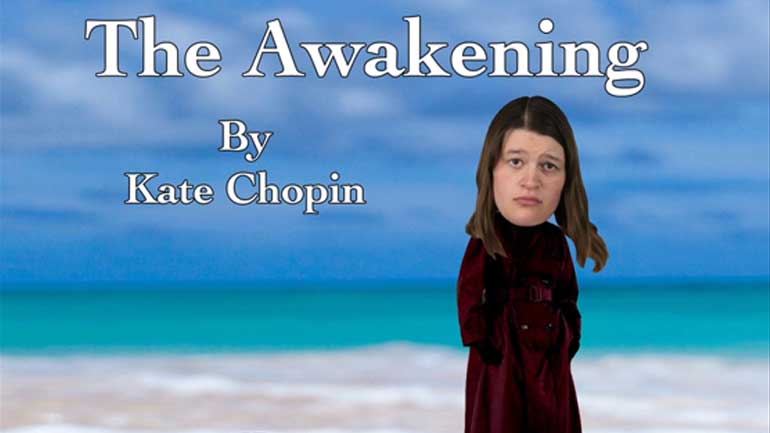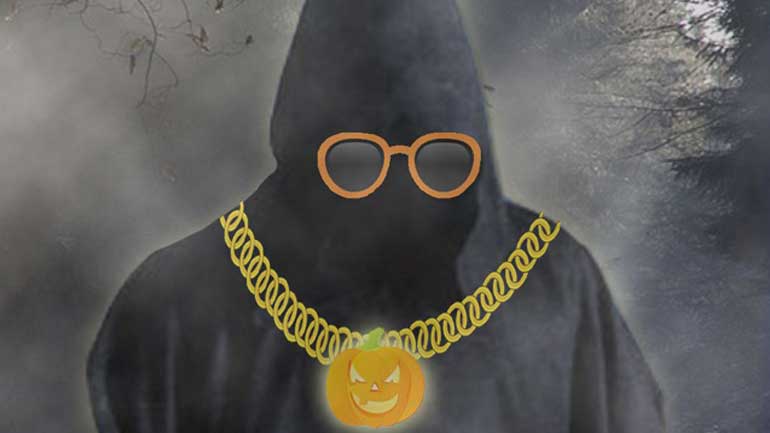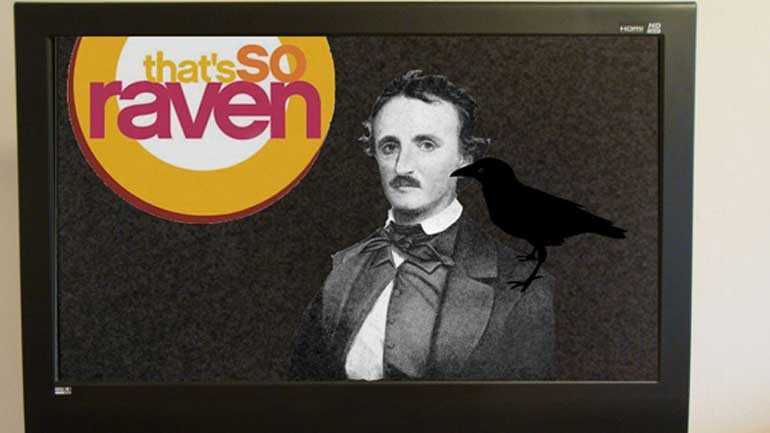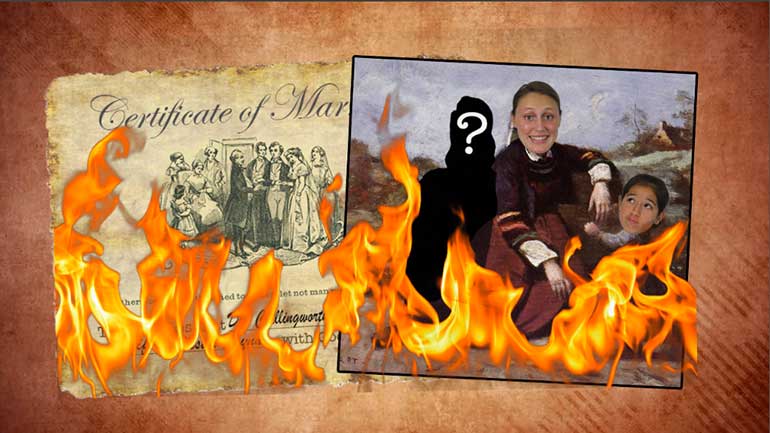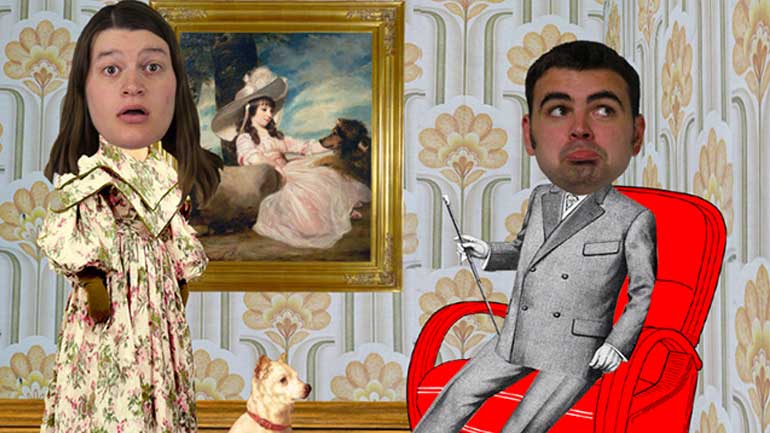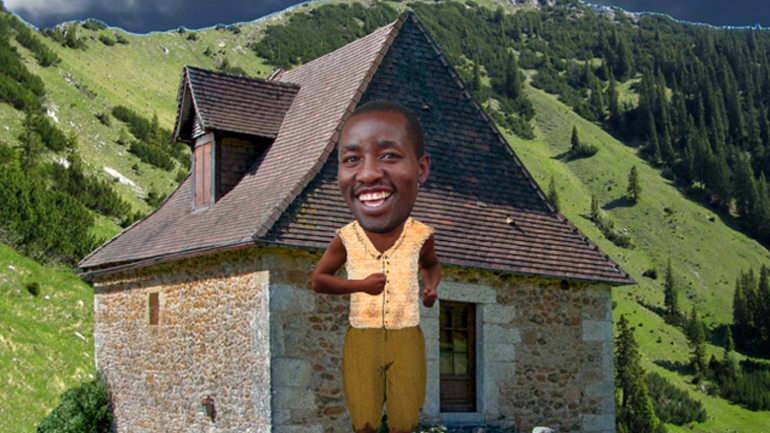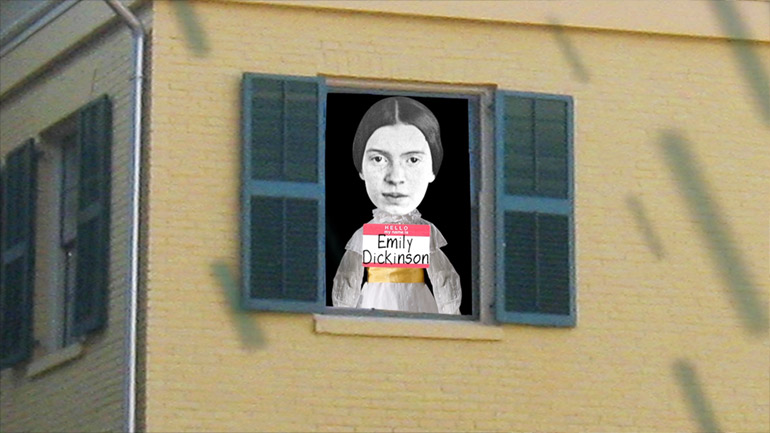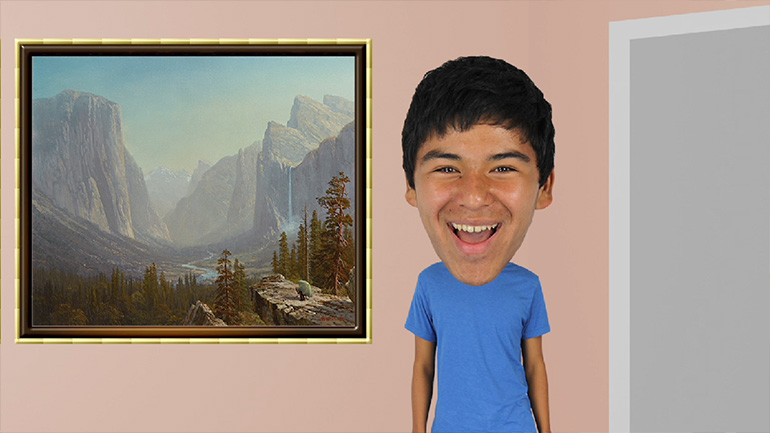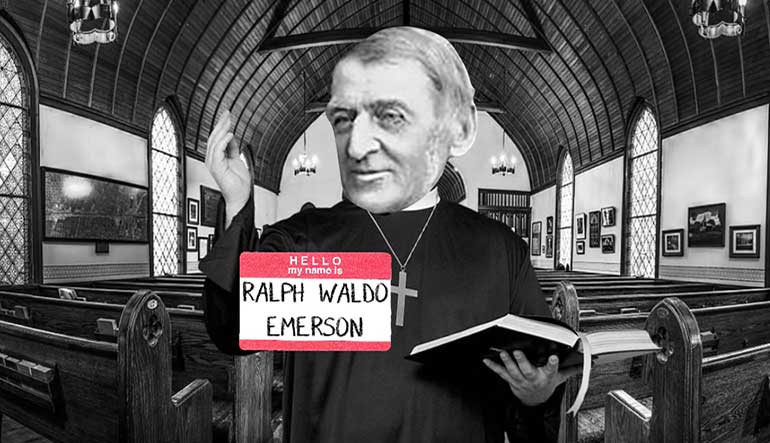ShmoopTube
Where Monty Python meets your 10th grade teacher.
Search Thousands of Shmoop Videos
19th-Century Literature Videos 51 videos
How did Scrooge go from being naughty to nice so quickly, and why? (Hint: contrary to popular belief, it has nothing to do with the ghost of Santa...
What would YOU do if the heart of the person you buried under the floorboards started making noise? Only one way to find out... (Note: Shmoop does...
Meet the Lady of Shalott. Not to be confused with the Lady of Shallot, who is frequently in a pickle.
American Literature: Huckleberry Finn: Road Trip 10416 Views
Share It!
- American Literature / All American Literature
- Literature / American Literature
- Courses / American Literature
- 19th-Century Literature / 19th-Century American Literature
- American Literature / 19th-Century American Literature
- Literature / 19th-Century Literature
- 19th-Century Literature / All 19th-Century Literature
Transcript
- 00:02
Like a road trip but wetter....
- 00:28
A lot of The Adventures of Huckleberry Finn take place on me the [River discussing Huckleberry Finn]
- 00:32
Mississippi River there's plenty of action along the way scoundrels, thieves
- 00:37
and slave hunters to dodge but what are we really doing out here besides all [Jim and Finn standing on a raft]
- 00:42
that well we're on what literary types like to refer to as the road trip motif
Full Transcript
- 00:47
just when you thought road trips were all about spring break in the wide world [Man in a swimming pool and his trunks float away]
- 00:51
of storytelling the road trip serves several purposes first and foremost it's
- 00:56
a way of using the hero's journey archetype which stories have used since
- 01:00
stories first started being a you know a thing think odysseus, Star Wars, the Bible
- 01:06
or even Batman well the hero's journey follows a basic
- 01:10
formula the hero gets a call to adventure they meet up with a mentor or [Adventure calling a cell phone]
- 01:14
guardian encounter challenges all along the way undergo some sort of
- 01:19
transformation usually a spiritual one then they go back home the end clearly [Woman exits a taxi and walks towards home]
- 01:25
Twain made use of this classic archetype when writing Huck Finn, Hucks the hero
- 01:29
Jim and the civilized folks are the mentors the river journey is the action
- 01:34
and the Dukan King business along with the feuding families certainly caused
- 01:39
conflict and Huck has his crisis of conscience when he realizes that the [Huck gasps as Jim fades travels away on a raft]
- 01:44
right thing to do is let Jim be a free man and then they go back home nope that
- 01:49
part doesn't happen no one said the archetype has to stick to its formula
- 01:52
like chaw on your shoe.. Twain deviates from the traditional hero's journey by
- 01:57
letting Huck ride you know float off into the sunset instead of [Huck and Jim floating into sunset]
- 02:01
returning home to his hateful abusive father also Pap, his father's dead now
- 02:06
well that wouldn't really work anyway would it? Twain also used the road trip
- 02:10
slash hero's journey idea as a tool of characterization
- 02:13
think about it the United States is a big place and different types of
- 02:18
people live in different regions of the country like you know Eskimos in Alaska [Group of eskimos in Alaska]
- 02:23
beach bums in Florida and farmers Midwest well not only do people believe
- 02:28
in slightly different things or wear different clothes they speak in
- 02:32
different ways as well so as Huck and Jim travel downstream on [Huck and Jim travelling downstream on a raft]
- 02:35
the mighty Mississippi they encounter different folks with different lives and
- 02:38
way different ways of speaking like these choice phrases from chapter 12 and
- 03:01
what? come again this isn't nonsense it's what [Mississippi river discussing book]
- 03:07
we like to call dialect language that you'll only hear in a certain part of
- 03:10
the world or spoken by a specific set of people
- 03:13
here's another....
- 03:23
Well first of all only those civilized folks call
- 03:26
Huck by his full first name that tells us something about who's speaking here
- 03:30
we can also tell that's character speaking is an authority figure since [Miss Watson appears]
- 03:33
they're throwing down commands like nobody's business and the character has
- 03:36
something of an education because Twain didn't write them by using a specific
- 03:40
dialect what we're reading is more or less basic English dialect is a fun
- 03:44
little way to characterize a character's because it lets the reader know all [Person picks up Huckleberry Finn book]
- 03:49
sorts of traits about them without the author coming right out and saying these
- 03:53
things... In those delightful first passages above the characters are
- 03:56
lowdown murderous, thieving fools aka bad guys...Twain writes this dialogue in a
- 04:02
dialect that shows they're uneducated and in this case they're clearly up to
- 04:06
no good but just because these fools were foolish it doesn't mean that they [Image of man pointing a gun at a man on the floor]
- 04:11
didn't also have some wise things to say being uneducated doesn't necessarily
- 04:16
equate to being unwise and in the second example miss Watson is ordering Huck
- 04:20
around using his full name to show that she means business..Here's a
- 04:24
third example, this is the way Twain wrote Jim's dialect...
- 04:48
....now when we know Jim's a slave
- 04:50
which means he's not been allowed the chance to have any education..The other
- 04:53
really important thing to note about the way Twain wrote the very dialect is that [Dialect floating in river]
- 04:57
besides being a super effective tool of characterization it's also how he's
- 05:02
created a voice for the books narrator Huck himself...
- 05:05
Huck's a kid and he's been through some tough stuff in life these are factors
- 05:10
which shape how he sees the world around him and how he tells the tale of his
- 05:14
experiences were an older more civilized narrator the telling this story it would
- 05:19
have to be written in a totally different way probably like how much [Miss Watson appears as Huck is sitting at a table with a bowl of food]
- 05:22
Watson speaks we lose a lot of the characterization as it stands now so
- 05:26
it's a good thing Twain opted to write this story in the way that he did even
- 05:29
though Twain differentiates the characters through dialect his
- 05:32
underlying commentary and a major theme in this book is that people are alike [Girl flicking through a book]
- 05:37
everywhere we made different thoughts morals, molars and the way we speak
- 05:42
everyone lets their own preconceptions color their approach to the world the [Girl wearing 3D glasses in a movie theater]
- 05:47
road trip or river trip more accurately here
- 05:50
let's Twain show us that people are alike all over they never look past
- 05:54
their front yard as the king so eloquently says...
- 06:06
What he means is that fools are everywhere no [Man sits down on a train and a clown appears]
- 06:08
matter where you go..they're they are... well above all the road trip story
- 06:12
is very American it takes a hero's journey but puts a
- 06:15
very red white and blue spin on it America is a big country lots of roads [Cars travelling down a highway]
- 06:19
lots of rivers lots of things to see we spent most of the 19th century
- 06:24
stampeding madly towards California in what's known as a national road trip
- 06:29
that took up a huge chunk of our history it's no wonder that Twain used it as a
- 06:34
blueprint to talk about American life and values you know for
- 06:37
better or worse tons of other writers have done the same in fact you can
- 06:41
probably find a road trip story to fit every mood
- 06:44
Steinbeck did it with The Grapes of Wrath and travels with Charlie... Kerouac [Road trip book examples appear]
- 06:48
did it with on the road you can even go with Fear and Loathing in Las Vegas or
- 06:53
the electric kool-aid acid test if drug abuse by proxy is your thing all of them
- 06:58
took at least some of their cues and inspiration from Huck Finn not just
- 07:01
because it's a seriously great story but because here on the Mississippi we do [Mississippi river transforms into a hypnotic trance]
- 07:06
trippin' in the right way
Related Videos
“Happy Hunger Games!” Or not. Katniss’s Hunger Games experiences left a not-so-happy effect on her. This video will prompt you to ponder if...
Who's really the crazy one in One Flew Over the Cuckoo's Nest? Shmoop amongst yourselves.
Sure, Edgar Allan Poe was dark and moody and filled with teenage angst, but what else does he have in common with the Twilight series?
¿Por que es el 'Gran' Gatsby tan gran? ¿Porque de su nombre peculiar? ¿Porque de el misterio que le rodea? Se ha discutido esta pregunta por muc...
Would would the world be like without books? Ray Bradbury tackles that question—and many more— in Fahrenheit 451. Go ahead; read it on your Kin...





















